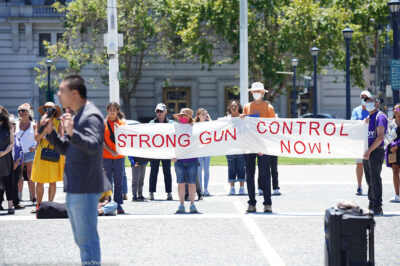The Federal Government Steps Up to Protect Survivors of Domestic Abuse From Eviction


Tonya Lee* and her two children had been living in their Maryland apartment complex for five years when her boyfriend became enraged during an argument and stabbed her and her older son. After the police arrested him, her landlord sent her a notice: They were evicting her because of the violence. Her lease included a standard provision authorizing eviction of tenants when there is criminal activity in their homes.
Domestic violence survivors shouldn’t face eviction just because the crime takes place in their home. The ACLU has been advocating for 15 years to establish survivors’ rights to stay in their homes after reporting domestic violence and sexual assault. Those rights are now a reality for millions of people across the country.
Today I was part of a forum with Department of Housing and Urban Development Secretary Julian Castro at which he announced three housing reforms that will help protect victims like Tonya from losing their homes. Speaking at the National Coalition Against Domestic Violence conference in Chandler, Arizona, Castro announced new regulations from HUD that guarantee survivors of domestic violence, sexual assault, dating violence, and stalking protection from eviction from federally funded housing. The regulations carry out housing rights created by the Violence Against Women Act (VAWA), which applies to public housing, Section 8 housing, and affordable housing developed with tax credits. The regulations also state that housing providers must develop policies that offer emergency transfer options for survivors who need to move to another location for safety reasons.
Survivors also often confront local nuisance, or crime-free, ordinances. These ordinances exist around the country and penalize tenants for calling 911 for criminal activity at their home, even when they are the victims. For example, Nancy Markham was nearly kicked out of her Surprise, Arizona, home after calling the police for protection from domestic violence. There was a city ordinance that treated 911 calls as “nuisances” that could lead to eviction.
After advocacy by the ACLU and our partners, HUD issued new guidance explaining that local nuisance ordinances can violate the Fair Housing Act because they so often penalize domestic violence victims who call 911. The guidance calls on cities to get rid of such ordinances to promote fair housing for domestic violence and other crime victims.
HUD also finalized regulations that for the first time explain how the Fair Housing Act prohibits sexual, racial, and other forms of harassment in housing. Such protections are vital to prevent the experiences of women like Yolanda Boswell, whose real estate manager repeatedly offered to reduce her rent in exchange for sex. When she refused, he raised her rent and threatened to evict her. We later learned that he similarly harassed several other women. Just as employers can be held accountable for harassment in the workplace, the regulations spell out how property owners and landlords are responsible when they fail to address harassment committed by their agents.
The ACLU represented Tonya, Nancy, and Yolanda as they successfully fought housing discrimination. But millions of people have faced the loss of their housing because they are victims of domestic and sexual violence. They may feel trapped and endure further violence to avoid homelessness.
These latest housing reforms bring us one step closer to a world where everyone’s home is a sanctuary. Survivors of violence cannot truly be free without being able to obtain and keep safe housing. And the right to fair housing must not only include having a roof over one’s head, but also living free from violence and abuse.
*Tonya Lee is a pseudonym.





